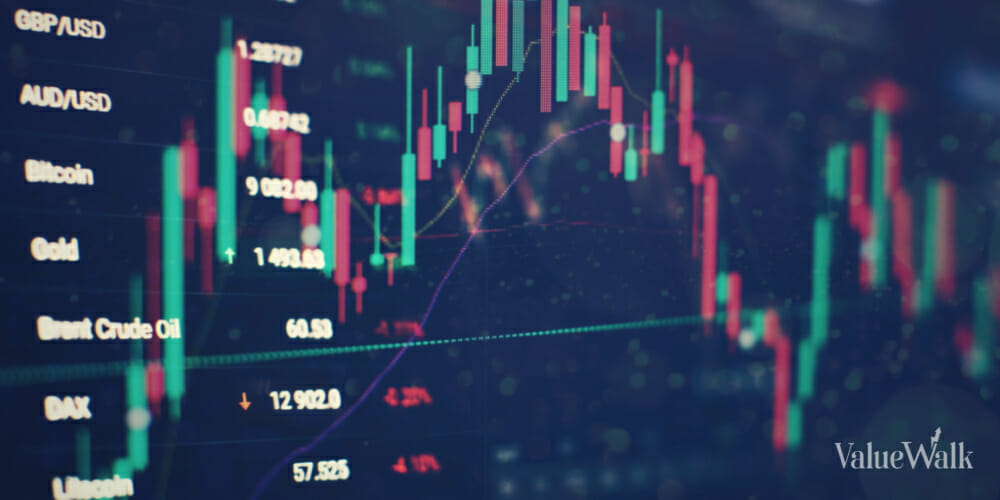Investors continue to park their cash in ultra-safe investment vehicles amid the current economic climate, with many hoping to cushion their portfolios against sudden market meltdown, seasoned professionals are flocking to defensive stocks.
The first half of the year has put investors to the test, in more ways than possible.
The Federal Reserve’s aggressive interest rate hike spree pushed the central bank’s benchmark rate to 5.1%, the highest in 16 years. The Fed initiated 14 consecutive interest rate hikes since it started its monetary tightening last year, with the most recent being in March of 25 basis points.
The U.S. economy narrowly skipped a potential banking crisis. Amidst surging interest rates, and stubbornly high inflation, a potential banking crisis started bubbling at the surface, as California-based venture capital bank, Silicon Valley Bank (SVB) went bust, bringing First Republic Bank and Signature Bank down with it.
The widespread economic chaos didn’t end there. Earlier in the year, U.S. Treasury Secretary, Janet Yellen, called on the Federal government to take “extreme measures” to cut spending, as the treasury started running out of cash and could struggle to pay its bills by early June.
Another crisis was narrowly averted, as the Senate passed a bill to raise the debt ceiling on Thursday, June 1, nearly four days before the so-called deadline preventing the first-ever U.S. default. Here’s to hoping that President Biden signs it on time.
The last several months of events have left investors jittery, and it’s prompted many to look into defensive stock options on the back of turbo-charged economic uncertainty, and global market volatility.
Why Investors Are Liking Defensive Stocks Now?
There’s no denying that defensive stock picks are just as difficult as any other on the market. However, in light of recent and ongoing economic events, defensiveness is key for investors against widespread market volatility.
Talks of more interest rate hikes in the coming months could be bad news for growth stocks, especially for those that are sensitive to that area of the economy.
Another factor to consider is looking at companies that have performed well during previous market turndowns and recessions, as these stock picks could present an upside in the long term, helping to cushion investors’ portfolios.
Taking on more defensive stocks can be tricky, as they present long-term gains, but can have lower returns during bull runs or if investors mistime the market.
Commenting on the importance of defensive stock picks and the debt ceiling talks, CNBC’s Jim Cramer said “You don’t want losers that turn into winners at this point. You want winners that stayed winners right through the worst of the debt ceiling talks.”
Looking at the historic performance of defensive stocks during times of market downturn, and recessions could be a good way to navigate current conditions, but investors need to remain on their toes and pick sectors that could help pull them through the market meltdown.
How investors are deciding on the right stocks
Defensive stocks can be seen as a “safety first” option for investors, as it provides them with consistent returns, even during bear market conditions. Additionally, these shares typically belong to well-established companies that are considered to be thought and innovation leaders in their marketplace.
Although there is an upside to investing in defensive stock options, investors of any caliber need to carefully consider their strengths and weaknesses beforehand. Seeing as these stocks can act as a “defensive” for investment portfolios, such as the name suggests, gaining more insights into what type of companies to invest in, and how to go about it will help investors better understand company liquidity and share price performance.
To find the right stock options that align with investor strategies and goals, professionals tend to look at the volatility of stocks compared to the overall market. Secondly, whether companies pay dividends on their shares, and whether or not they have a good track record of paying dividends.
Finally, the 52-week price range can also tell investors more about how these stocks have performed within a one-year streak, gaining a further understanding of how macroeconomic conditions can impact stock performance.
These big names represent not only a sizable portion of the marketplace, but they can provide investors with more stability during turbulent market circumstances. Investors typically leverage market data and resources that are available via their broker or a trading platform.
Investors can leverage online broker platforms such as Interactive Brokers, cTrader, TradingView, or MetaTrader 5, to access reliable educational materials, however, it’s important to do further research on how these companies are performing, or even looking at their past earnings reports, chart performance, and long-term outlook strategy.
Five Resilient Defensive Stock Picks
Getting into the defensive stock sector requires investors to do a good amount of homework, and know exactly how to execute their trades strategically.
Walmart
The supersized discount retailer, Walmart (NYSE:WMT) has held a steady position during recent economic turmoil, and that’s largely due to the fact that American consumers can’t go without groceries, even if the cost of consumer goods continues to increase against the backdrop of higher-than-expected inflation.
During the last two recessionary periods in 2008 and 2020, Walmart managed to outperform the S&P 500 by 56.3% and 5.1%, respectively. The retailer has moved past the supply and demand challenges that plagued its operations in 2022 and have now positioned itself to start expanding its margins by 2024.
WMT stock prices climbed by 3.81% year-to-date (YTD), and the company reported a 7.58% increase in year-over-year (YoY) revenue for the period ending April 2023. The company still faces other challenges that could deter its earnings potential, having to bump up wages for some of its opticians and pharmacists, however, its overall performance can give investors an upside in the long term.
Johnson & Johnson
Pharmaceutical and consumer packaged goods conglomerate, Johnson & Johnson (NYSE:JNJ) holds impressive earnings and valuation fundamentals according to the most recent insight reports by Yahoo Finance.
From this, we see that JNJ also holds an average earnings upside of 4%, partially because the company comprises roughly 250 subsidiaries. It operates a remarkably diverse business model, which is perhaps its biggest strength compared to other companies that operate in the same sector.
For its financials, JNJ reported $24.75 billion in revenue, an increase of 5.63% YoY ending April 2023, however, total income decreased by $68 million for the same recorded period. While the company navigates immense macroeconomic challenges, including supply chain, logistic inflation, price increases, and higher operating costs, it continues to reflect steady performance despite global headwinds.
Accenture Plc
As one of the biggest information technology and consulting firms in the world, Accenture (NYSE:ACN) isn’t perhaps a household name under the defensive stock umbrella. Nonetheless, looking at the company’s stock performance during past recessionary periods, the outlook for the months ahead could prove fruitful for investors looking to cushion their portfolios.
The company recently secured a $2.6 billion contract to improve and modernize IRS systems according to a report by Reuters. On top of this, the company has spread its operations across the world, making nearly half of its revenue in North America, one-third in Europe, and the remainder are scattered across other essential markets.
During its most recent earnings call, the company posted positive cash flow, resulting in an ever-improving balance sheet, with revenue up by 5.10%, and net income down slightly by 6% YoY. More surprisingly, ACN stock performance is up more than 30% TYD, and YoY stock prices are only down by 1.42%.
Visa
Wall Street analysts and investors continue to keep a bullish sentiment for Visa (NYSE:V) as the company recently reported quarterly Earnings Per Share (EPS) of $2.09 on revenue of $7.98b billion. These figures were above analysts’ expectations.
Despite the recent banking crisis scare and a potential bank run, Visa remains resilient, with an average brokerage recommendation of 1.39 on a scale of 1 to 5. This leaves Visa with a Strong Buy consensus, based on roughly 22 recommendations according to Zacks rankings data.
Stock guidance also looks positive. During the baking crisis, which saw the collapse of SVB and several other regional banks, Visa stocks gained 0.11% over the 5 days between March 10 and March 15. More so, YTD prices are up just under 20%, and further analysis shows that many investors are holding a bullish sentiment on Visa, as prices are presumed to tick up again in the coming months.
Coca Cola
Coca-Cola (NYSE:KO) is perhaps one of the world’s most recognizable brands, trusted by consumers and investors alike, even Warren Buffet can’t seem to get enough of the global beverage maker.
While Coca-Cola has seen steady declines from its earlier peak, both revenue and income remained positive on the back of slower consumer spending and higher unit-selling prices due to inflation.
Overall, most of the company’s revenue streams remain highly operational, even as YTD stock prices are down by 2.95%. A look at the company’s financial situation sees it reporting a 4.66% YoY revenue increase for the period ending March 2023. Its balance sheet also gained several points, and total net income is up by 11.72% to $3.11 billion during the same recorded period.
Given the company’s trusted reputation, and the prowess to weather off any recessionary headwinds, Coca-Cola can give investors the upside they need amid market volatility, however, it could come at the notion of holding KO for the long-term, instead of focussing on shorter gains.
Final Thoughts
To conclude this take on defensive stock picks, investors need to keep their finger on the trigger, as tumultuous market conditions could throw them into the deep end without warning. Those that are seeking a more comfortable position during market turmoil could look at defensive stock picks, but investors should diversify their options according to sector performance, selecting a range of defensive stock companies.
Given the current conditions, it’s hard to say in which direction the pendulum could swing for investors. There’s a lot of uncertainty currently bubbling underneath the surface, and this could surely leave many investors with cold feet. Nonetheless, it’s crucial to take a position that aligns with your long-term goals and seek out defensive stock options that can help cushion the unexpected hard blows.





